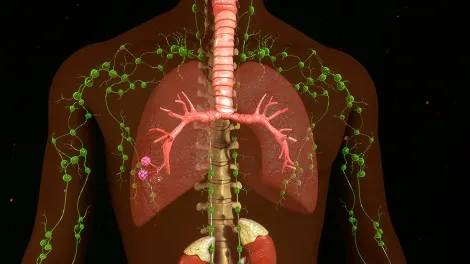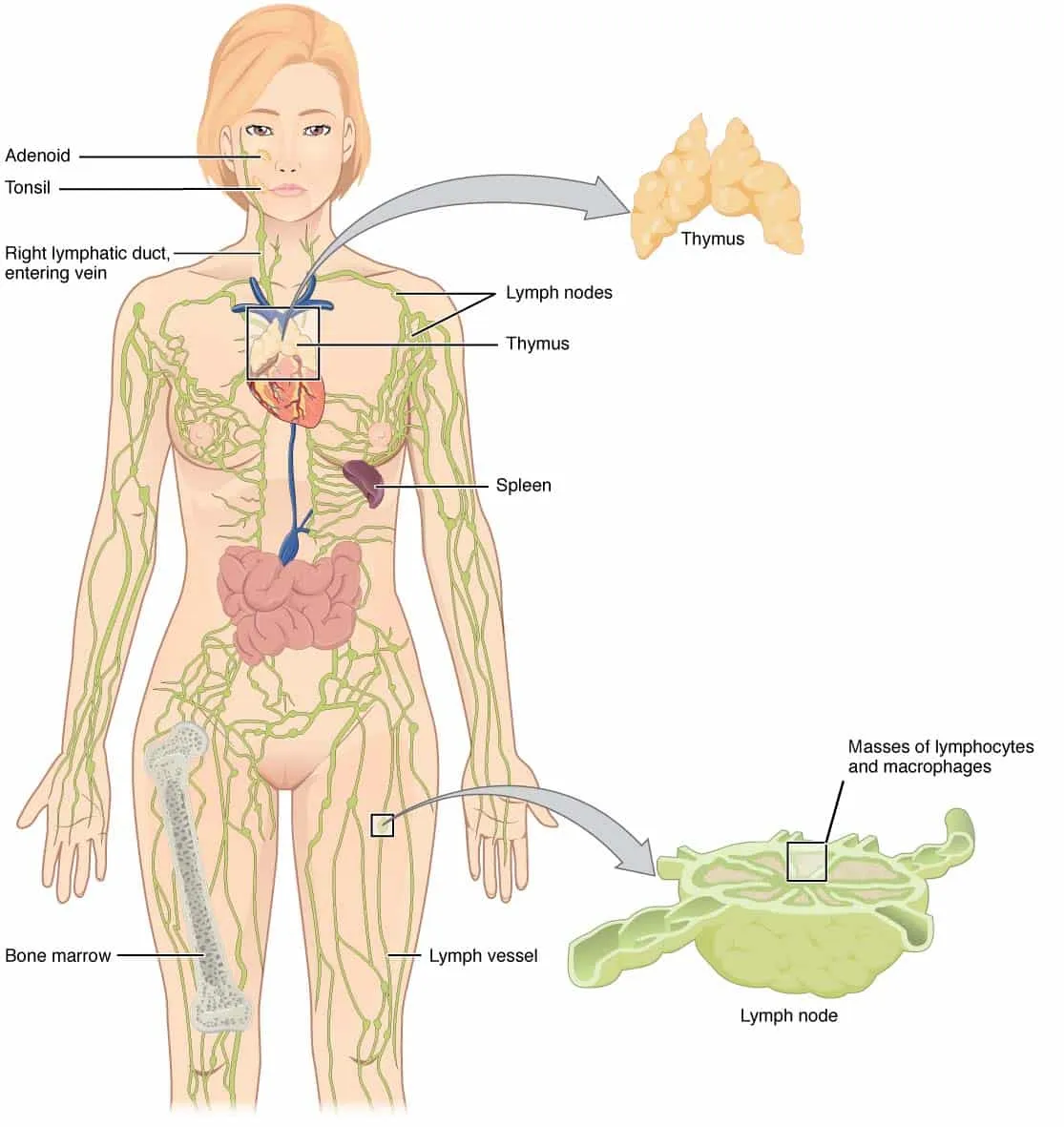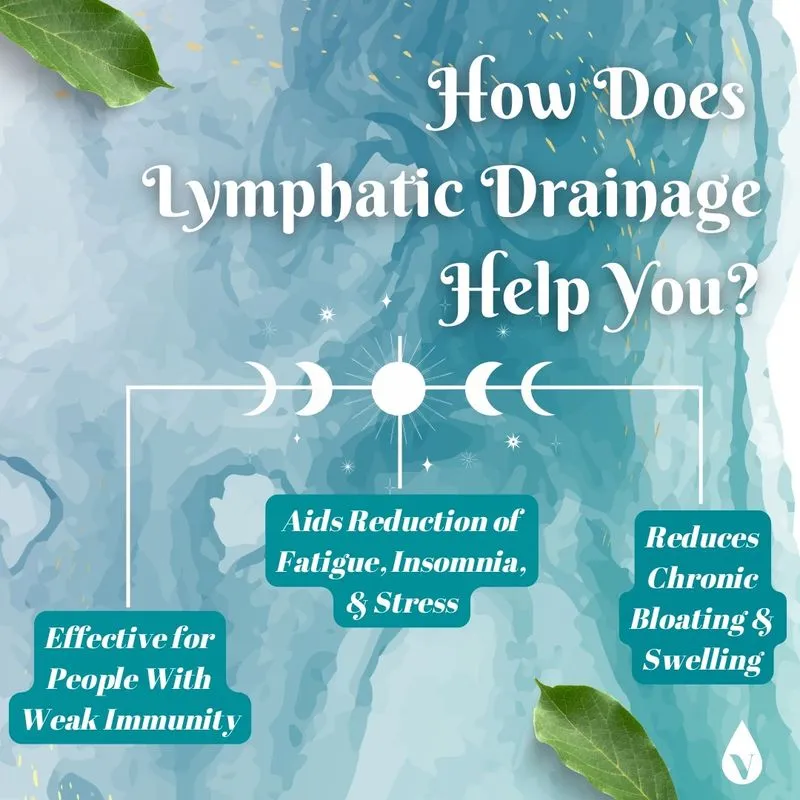
The lymphatic system plays a crucial role in maintaining our overall health and well-being, yet it is often overlooked in discussions about wellness. Understanding the importance of lymphatic drainage is essential for optimizing our body's natural detoxification process and supporting immune function. In this blog, we will explore the benefits of lymphatic drainage, including its ability to reduce inflammation and promote healing. We will also delve into various lymphatic drainage techniques, such as manual lymphatic drainage and lymphatic massage, to understand how they can be incorporated into healthcare practices. Additionally, we will discuss specific conditions that can benefit from lymphatic drainage, such as lymphedema and post-surgical swelling, highlighting the significant impact it can have on patients' recovery. Moreover, we will explore the connection between lymphatic drainage and holistic health, including its role in stress reduction and overall well-being. By examining the latest research and evidence on lymphatic drainage, we aim to provide a comprehensive understanding of its effectiveness and potential in promoting optimal health. Furthermore, we will discuss the importance of professional training in lymphatic drainage and offer guidance on choosing the right practitioner for individuals seeking this form of therapy.

The lymphatic system is a vital part of the body's immune system, responsible for carrying and filtering lymph fluid throughout the body. This network of vessels and nodes helps to remove waste, toxins, and other unwanted materials from the body, playing a crucial role in maintaining overall health.
Anatomy-wise, the lymphatic system includes organs such as the tonsils, thymus gland, spleen, and lymph nodes. These structures work together to fight off infections and diseases by producing white blood cells that help destroy harmful pathogens. Additionally, they also assist in regulating fluid balance within tissues.
One of the key functions of this complex system is its role in facilitating proper lymphatic drainage. Proper drainage ensures that excess fluids are removed from bodily tissues which can otherwise lead to swelling or edema. It also aids in transporting important nutrients around the body while helping to maintain a healthy immune response.

Lymphatic drainage plays a crucial role in boosting immune function by helping the body eliminate toxins, waste, and other unwanted materials. By ensuring that the lymph fluid is flowing properly, it helps the immune system to fight off infections more effectively and maintain overall health.
Another important benefit of lymphatic drainage is its ability to reduce inflammation in the body. When the lymphatic system becomes sluggish or blocked, it can lead to a buildup of toxins and cellular waste, which may contribute to inflammation. Through proper drainage, this accumulation can be reduced, promoting better tissue healing and reducing chronic pain.
Furthermore, supporting detoxification is another key advantage of lymphatic drainage. The lymphatic system works closely with the circulatory system to remove waste from every cell in the body. By enhancing lymph flow through targeted massage techniques or other therapies, detoxification processes are optimized, leading to improved overall health and well-being.
Manual lymphatic drainage is a gentle, hands-on technique that encourages the natural flow of lymph fluid in the body. This specialized massage technique targets the lymph nodes and vessels to stimulate their activity, helping to remove waste products, toxins, and excess fluid from the tissues.
lymphatic massage is another effective technique for promoting lymphatic drainage. It involves rhythmic and light strokes to help move lymph fluid through the body's network of vessels. This type of massage can be particularly beneficial for individuals with compromised lymphatic systems or those recovering from surgery or injury.
The use of compression garments, such as sleeves, gloves, or stockings, can also aid in promoting healthy lymphatic flow. These garments apply gentle pressure to specific areas of the body, facilitating movement of the lymph fluid and preventing it from pooling in certain areas. By incorporating these techniques into a regular self-care routine, individuals can support their overall health and well-being by optimizing their lymphatic system function.
Lymphedema, a condition characterized by swelling in the arms or legs due to a blockage in the lymphatic system, can greatly benefit from lymphatic drainage. By manually stimulating the lymph nodes and vessels, this gentle massage technique helps reduce swelling and improve overall circulation, providing relief for individuals with lymphedema.
fibromyalgia, a chronic disorder that causes widespread musculoskeletal pain and fatigue, is another condition that can benefit from lymphatic drainage. The gentle movements involved in this therapy help alleviate pain and discomfort by promoting better fluid circulation throughout the body. Many patients have reported reduced pain levels and improved quality of life after incorporating regular lymphatic drainage into their treatment plans.
Post-surgical swelling is a common side effect of surgery as the body responds to trauma by accumulating excess fluid at the site of the incision. Lymphatic drainage can aid in reducing this swelling by encouraging proper fluid movement through the lymphatic system. This not only speeds up recovery but also minimizes discomfort associated with post-surgical edema.
The role of chiropractors in lymphatic drainage is essential as they can provide specialized techniques to stimulate the flow of lymph throughout the body. By incorporating lymphatic drainage into their practice, chiropractors can help improve immune function and reduce swelling or edema in their patients. This collaboration between chiropractic care and lymphatic drainage can result in a more holistic approach to healthcare, addressing both musculoskeletal issues and promoting overall wellness.
In addition to chiropractors, collaboration with other healthcare professionals such as massage therapists, physical therapists, and naturopathic doctors can further enhance the integration of lymphatic drainage into patient care. By working together, these professionals can develop comprehensive treatment plans that incorporate manual techniques for promoting lymphatic flow alongside other modalities. Educating patients on the importance of maintaining healthy lymphatic function is also crucial in this process, as it empowers individuals to take an active role in their health and well-being.
By recognizing the significance of optimal lymphatic drainage for overall health, healthcare providers are better equipped to address a wide range of conditions related to fluid retention, inflammation, detoxification, and immune support. Incorporating methods that promote efficient movement of lymph within the body contributes to a more comprehensive approach to healthcare that prioritizes preventive measures and supports natural healing processes.
The importance of lymphatic drainage for holistic health cannot be overstated. The lymphatic system plays a crucial role in maintaining the body's immune function, fluid balance, and overall well-being. By promoting the efficient drainage of lymph, this practice helps to remove toxins and waste from the body, which in turn supports optimal organ function and reduces the risk of illness.
When combined with other holistic practices such as massage therapy, yoga, or acupuncture, lymphatic drainage can enhance its benefits even further. These complementary approaches work together to promote relaxation, reduce inflammation, and support the body's natural healing processes. As a result, individuals may experience improved energy levels, better sleep quality, and an overall sense of vitality.
Additionally, one of the key benefits of lymphatic drainage is its ability to reduce stress levels. By promoting healthy circulation and detoxification within the body's tissues, this practice can help alleviate tension and promote a state of deep relaxation. As stress is known to have detrimental effects on both physical and mental health - including immune suppression - incorporating lymphatic drainage into a holistic wellness routine can be highly beneficial.
Numerous clinical studies have demonstrated the benefits of lymphatic drainage for overall health. These studies have shown that regular lymphatic drainage can help reduce swelling, improve immune function, and promote detoxification in the body. Additionally, research has suggested that lymphatic drainage may also aid in managing conditions such as fibromyalgia and chronic fatigue syndrome.
In addition to clinical evidence, many individuals have reported positive outcomes from incorporating lymphatic drainage into their wellness routines. Patient testimonials often highlight improvements in energy levels, reduced pain and inflammation, as well as enhanced recovery from injuries or surgical procedures. These personal accounts provide further support for the efficacy of lymphatic drainage in promoting better health.
Furthermore, expert opinions within the medical community validate the importance of maintaining healthy lymphatic flow through techniques such as manual lymphatic drainage or specialized massages. Healthcare professionals emphasize the role of the lymphatic system in supporting proper immune function and stress the significance of optimizing its function for overall well-being.
Certification programs for lymphatic drainage are designed to provide healthcare professionals with the specialized skills and knowledge needed to effectively support the body's natural lymphatic system. These programs often include comprehensive coursework and hands-on training to ensure that participants have a deep understanding of lymphatic anatomy, physiology, and techniques for promoting optimal lymph flow.
Continuing education opportunities in lymphatic drainage offer established healthcare professionals the chance to expand their expertise and stay up-to-date with the latest advancements in this field. Through advanced workshops and seminars, practitioners can refine their skills, learn new approaches, and network with other professionals who share an interest in supporting healthy lymphatic function.
Specialized training in lymphatic drainage is essential for ensuring that healthcare providers have the necessary tools to address issues related to compromised or impaired lymph flow. By gaining proficiency in manual techniques, compression therapy, and other modalities used to encourage proper fluid balance within the body, professionals can play a crucial role in enhancing overall health outcomes for their clients or patients.
When choosing a lymphatic drainage practitioner, it is crucial to consider their qualifications and credentials. Look for practitioners who have received proper training and certification in lymphatic drainage therapy. This can include specialized courses or certifications in manual lymphatic drainage techniques, as well as a strong understanding of the anatomy and physiology of the lymphatic system. Additionally, you may want to inquire about any additional training or experience they have in working with specific health conditions that may benefit from lymphatic drainage.
Another important factor to consider is the treatment approach and philosophy of the practitioner. Some practitioners may focus on a holistic approach, considering not only physical symptoms but also emotional and mental well-being. Others may take a more clinical approach, focusing primarily on the physiological aspects of lymphatic drainage. It's essential to find a practitioner whose approach aligns with your personal preferences and needs for treatment.
Lastly, be sure to seek out patient reviews and recommendations when selecting a lymphatic drainage practitioner. Hearing about other patients' experiences can provide valuable insight into what you can expect from a particular practitioner. Look for testimonials that speak to the effectiveness of their treatments, professionalism, and overall quality of care provided.
At Prime Chiro, we understand the importance of finding the best chiropractor near you in Lansvale NSW and the nearby areas of Fairfield, Liverpool, and Cabramatta. Our team of experienced professionals is dedicated to providing top-notch chiropractic care and consultation services to help you achieve optimal wellness. Whether you are dealing with back pain, neck pain, headaches, or other musculoskeletal issues, we are here to help. Schedule a consultation with Prime Chiro and take the first step towards a healthier and pain-free life. Our personalized approach and commitment to excellence make us the ideal choice for individuals seeking high-quality chiropractic care in the Lansvale area.
Lymphatic drainage is a therapeutic massage technique that helps to stimulate the flow of lymph fluid in the body, promoting the removal of toxins and waste.
Lymphatic drainage is important for health as it helps to boost the immune system, reduce inflammation, improve circulation, and detoxify the body.
Lymphatic drainage can benefit anyone who wants to improve their overall health and well-being. It is particularly beneficial for those with lymphedema, post-surgery swelling, or a weakened immune system.
Lymphatic drainage is typically performed by a trained therapist using gentle, rhythmic massage techniques. It can also be done through specialized equipment such as lymphatic drainage machines.
Lymphatic drainage is generally safe and well-tolerated. However, some individuals may experience temporary mild side effects such as increased urination, fatigue, or flu-like symptoms as the body eliminates toxins.
TL;DR: The lymphatic system plays a crucial role in immune function and detoxification. Lymphatic drainage techniques, such as manual lymphatic drainage and lymphatic massage, can help reduce inflammation and support overall well-being. Conditions like lymphedema and post-surgical swelling can benefit from lymphatic drainage, and it can be incorporated into holistic healthcare practices. Research and evidence support the effectiveness of lymphatic drainage, and there are professional training programs available for practitioners. When choosing a lymphatic drainage practitioner, consider their qualifications, treatment approach, and patient reviews.